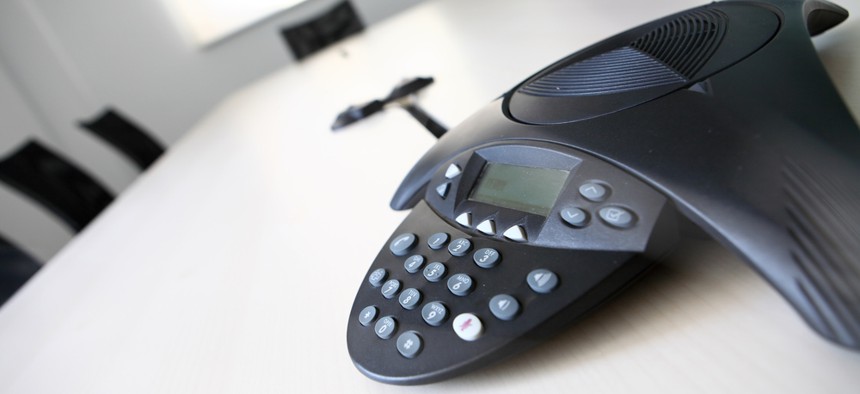
zhu difeng/Shutterstock.com
Study: Nobody Is Paying Attention on Your Conference Call
"Please enter the passcode. Then press pound. Now continue playing Candy Crush."
It's 3:15 p.m. on a Wednesday, and I am deep, deep inside the guts of BaseballReference.com, the statistical mecca for MLB fanatics, conducting an exhaustive investigation on an issue of national importance: What was the greatest pitching season of all time? Was it Bob Gibson in '68? Pedro Martinez in 2000? Clayton Kershaw in 2014? Browser tabs and Excel charts extend across my two computer screens like the dashboard of a junior analyst. The answer is coming into focus when, suddenly, a voice from the phone shocks me back into reality...
... "Derek, what do you think? Derek. Derek! "
Oh, that's right. I'm on a conference call.
"Sorry, I was on mute," I say.
I wasn't on mute. What were they talking about? From my shallow working memory, I can make out a few words spoken while I was looking up Martinez's strikeout numbers— headlines? narrative structure? something about never again using personal anecdotes as ledes ?—and I take a deep breath.
"Well, I guess I'd like to begin by piggy-backing on that last point about anecdotal ledes..."
***
The best studies are the ones that tell us we are not alone. A new survey from Intercall, the largest international conference call company, finds that when I occasionally zone out on conference calls, I'm participating in a national pastime, not unlike baseball.
More than 60 percent of Intercall's respondents admitted to doing other work or sending an email while on a conference call. More than half the people on the line are eating (hopefully on mute). Just under half are in the bathroom (hopefully on mute!). One in five are shopping. One in 11 are exercising . Six percent are taking another call. Suddenly I don't feel so bad about looking up Clayton Kershaw's ERA+.

Conference calls might be one of the least exciting aspects of office life, but their necessity points to a positive development in the workplace.
When routine-based assembly-line work dominated the economy, important decisions were made by a small group of executives and delegated down to the drones. Today, the decision-making process at many large corporations is diffuse and democratized, so that many lower- and mid-level employees have responsibilities that would have seemed absurd at old companies. With this democratization of power comes a heightened need for bosses to constantly check in, assess, manage, and tweak strategy. As teams spread out across the country, the conference room has given birth to the conference call.
But even the executive that stands to benefit the most from our conferencing addiction says that it is killing our productivity. Rob Bellmar, Intercall's executive vice president of conferencing and collaboration, told Harvard Business Review that the fault is not in our attention spans, but in our approach to work. "Part of the problem comes from too many meetings," he said. "This leads people to confuse activity with productivity." In three separate surveys , managers said that between 25 and 50 percent of their time in meetings was a waste of time. A large review of studies on meeting productivity similarly found that meetings, although critical to workflow across many industries, repeatedly tested as being net drains to productivity. One 1982 study found that mid-level managers spend the equivalent of one full year of their full working-and-non-working life in meetings.
The academic literature doesn't say that meetings are intrinsically pointless. After all, that conclusion wouldn't make any sense. There are some questions that require input from entire teams, or from individuals from multiple divisions, and it would be absurd to call for dozens of one-on-one meetings rather than call a single get-together. An often-cited 1982 study with the catchy title Are N + 1 Heads Better Than One? found that "group performance was generally qualitatively and quantitatively superior to the performance of the average individual." The key is knowing when to let individuals work individually and when to pool together their ideas. “Decades of research have consistently shown that brainstorming groups think of far fewer ideas than the same number of people who work alone and later pool their ideas," wrote the Washington University psychologist Keith Sawyer.
The meetings will continue, whether or not my morale improves. I will do my best to keep the BaseballReference.com dalliances down to a single tab.
( Image via zhu difeng / Shutterstock.com )
NEXT STORY: Eric Holder’s Challenge in Ferguson






